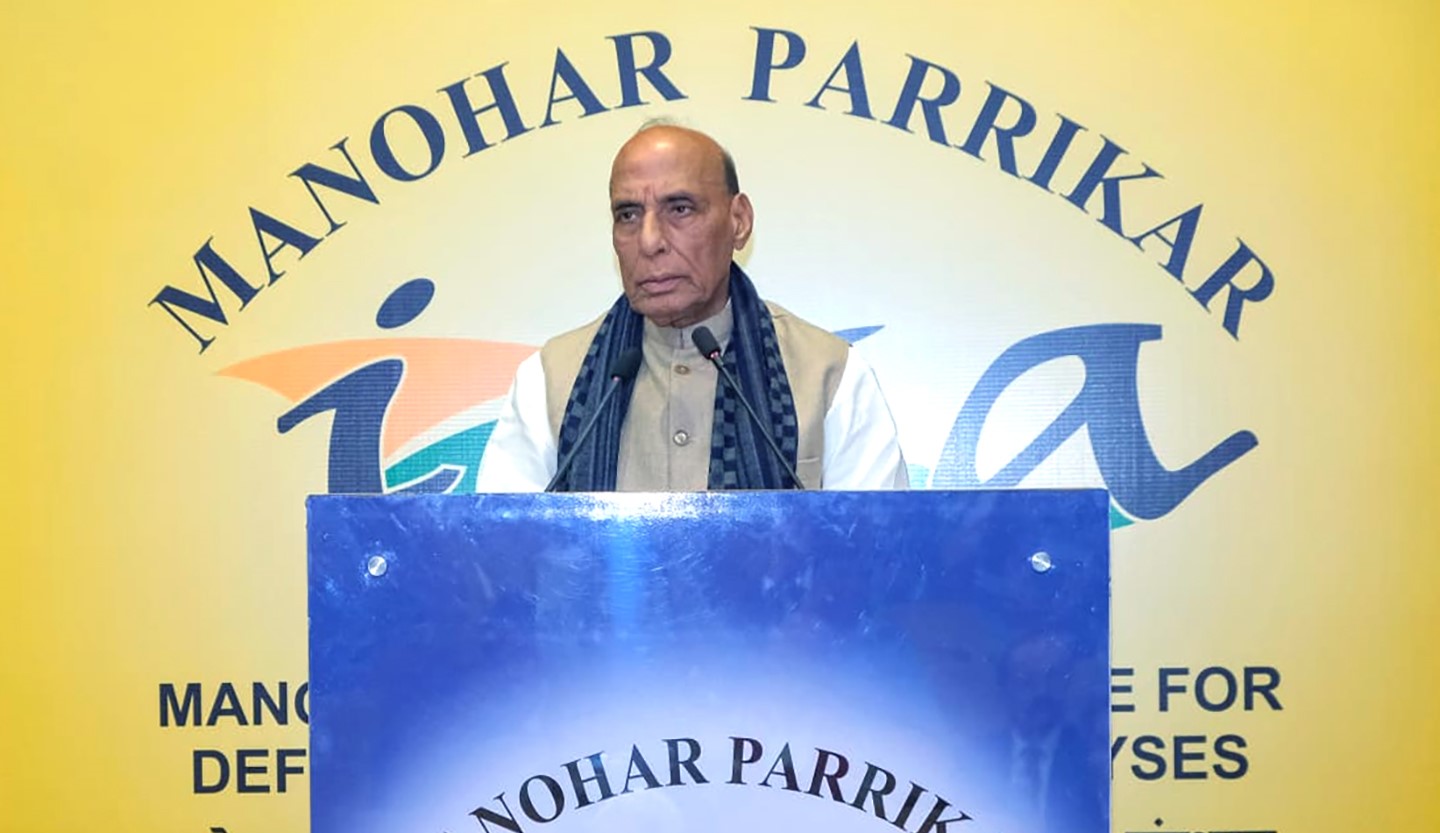Defence Minister Rajnath Singh on Tuesday called for building a self-sustaining ecosystem to accelerate the creation and adoption of new technologies in the defence sector, stressing that India must evolve from being a consumer to a creator of innovation.
Addressing the Delhi Defence Dialogue 2025, organised by the Manohar Parrikar Institute for Defence Studies and Analyses (MP-IDSA) on the theme ‘Harnessing New Age Technology for Defence Capability Development’, Singh said the nation’s progress rests on collaboration among “the soldier, the scientist, the start-up, and the strategist.”
“If our foundations are strong, our institutions agile, our minds open, and our collaboration seamless, then every new technological wave will not overwhelm us, it will propel us. We will not merely adapt to revolutions made elsewhere, but become the architects of revolutions born here”, he said.
The defence minister noted that technological advancement should go beyond tools such as artificial intelligence, quantum computing, or swarm systems to include reforming the institutions that employ them. “Harnessing technology is not just about adding new tools; it is about making our institutions more agile, anticipatory, and adaptive,” Singh said.
He pointed out that much of defence readiness relies on “invisible technologies” like secure data architectures, encrypted networks, and automated maintenance systems, and urged stronger institutional capacity to absorb and apply emerging innovations effectively.
India’s defence industrial base, he observed, is growing with confidence through greater synergy among the Defence Research and Development Organisation (DRDO), the Armed Forces, industry, and academia. Initiatives such as Innovations for Defence Excellence (iDEX) and the Technology Development Fund (TDF) are nurturing a new generation of innovators.
“From young entrepreneurs and MSMEs to Indian multinationals, all have shown collective will to help achieve the mission of Viksit Bharat and Aatmanirbharta,” he noted.
Extending the idea of self-reliance to the digital domain, the defence minister highlighted the need to achieve “digital sovereignty” — control over algorithms, data, and chips that power modern platforms. “True strategic autonomy will come only when our code is as indigenous as our hardware,” he said.
Singh outlined the government’s efforts to promote secure software stacks, trusted semiconductor supply chains, and AI models trained on Indian data, while emphasizing that technology should “amplify, not replace” human judgment.
The minister also urged the armed forces to integrate data analytics into procurement processes and assess life-cycle costs of systems at the inception stage to ensure sustainability. Adopting global best practices in training, logistics, and management, he noted, can often be more beneficial than merely importing advanced equipment. “It is far better to import best practices than to import the best equipment,” he added.














